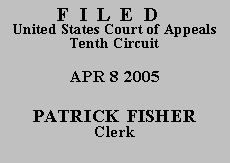

| JAMES R. DUNCAN, |
|
The parties are familiar with the facts and we need not restate them here. Upon reviewing the record, we are satisfied that the district court was correct in granting summary judgment in favor of Defendants-Appellees as Mr. Duncan failed to exhaust administrative remedies. See Porter v. Nussle, 534 U.S. 516, 532 (2002); Jernigan v. Stuchell, 304 F.3d 1030, 1032 (10th Cir. 2002). Even assuming that Mr. Duncan was affirmatively misled by prison officials that his excessive force claim could not be grieved (thereby excusing the exhaustion requirement), he has failed to demonstrate a genuine issue of material fact on that claim. See Fed. R. Civ. P. 56(e). Given the nature of this case, we refuse to appoint counsel. See Long v. Shillinger, 927 F.2d 525, 527 (10th Cir. 1991) (identifying factors courts consider in deciding whether to appoint counsel in civil cases).
Mr. Duncan's motion to proceed on appeal without prepayment of fees is GRANTED, his motion for reconsideration of appointment of counsel is DENIED, and the district court's judgment is AFFIRMED. Mr. Duncan is also reminded that he is obligated to make partial payments to this court until the entire appellate filing fee is paid in accordance with 28 U.S.C. § 1915(b).
Entered for the Court
Paul J. Kelly, Jr.
Circuit Judge
*. This order and judgment is not binding precedent, except under the doctrines of law of the case, res judicata, and collateral estoppel. This court generally disfavors the citation of orders and judgments; nevertheless, an order and judgment may be cited under the terms and conditions of 10th Cir. R. 36.3.
2. After examining the briefs and the appellate record, this three-judge panel has determined unanimously that oral argument would not be of material assistance in the determination of this appeal. See Fed. R. App. P. 34(a); 10th Cir. R. 34.1(G). The cause is therefore ordered submitted without oral argument.